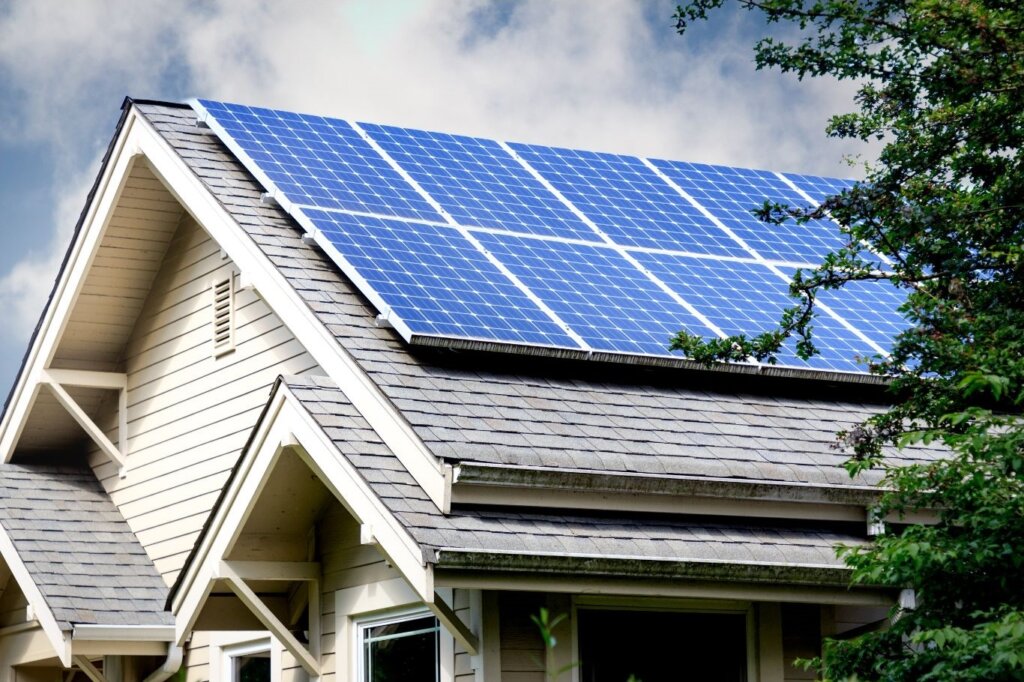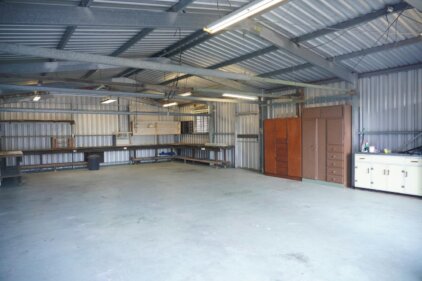Solar panels have become increasingly popular in recent years as more and more people seek sustainable and renewable energy sources. These panels harness the power of the sun to generate electricity, offering a clean and efficient alternative to traditional energy sources. In this comprehensive guide, I will explain how solar panels work, the benefits of using solar energy, and provide tips on how to maximize the benefits of solar panels in your home.
How do Solar Panels Work?
Solar panels work by converting sunlight into electricity through a process called photovoltaics. Photovoltaic (PV) cells, which are the building blocks of solar panels, are made of semiconducting materials such as silicon. When sunlight hits these cells, it excites the electrons in the atoms of the material, causing them to move and create an electric current.
To maximize the efficiency of solar panels, multiple PV cells are connected together to form a module, and several modules are combined to create an array. The electricity generated by the solar panels is then converted from direct current (DC) to alternating current (AC) using an inverter, making it compatible with the electrical systems in our homes.
Understanding Photovoltaics
Photovoltaics is the process by which solar panels convert sunlight into electricity. The key component of photovoltaic cells is the semiconductor material, typically silicon, which has special properties that allow it to absorb photons from the sun and release electrons. These electrons are then captured and directed to create an electric current.
There are two types of photovoltaic cells: monocrystalline and polycrystalline. Monocrystalline cells are made from a single crystal structure, making them more efficient but also more expensive. Polycrystalline cells, on the other hand, are made from multiple crystal structures, resulting in a lower efficiency but a lower cost.
The Benefits of Using Solar Energy
Solar energy offers numerous benefits for both individuals and the environment. By harnessing the power of the sun, we can reduce our dependence on fossil fuels and decrease greenhouse gas emissions, helping to combat climate change. Solar energy is a renewable resource, meaning it will never run out, making it a sustainable choice for the future.
Using solar panels can also lead to significant cost savings. While the initial investment may seem high, the long-term savings on energy bills can be substantial. Additionally, many governments and utility companies offer incentives and rebates for installing solar panels, further reducing the financial burden.
Can Solar Panels Save Energy in Your Home?
Solar panels have the potential to save energy in your home by generating electricity that can be used to power your appliances and lighting. The amount of energy you can save will depend on various factors such as the size of your solar panel system, your energy consumption, and the amount of sunlight your location receives.
To accurately assess the energy-saving potential of solar panels in your home, it is recommended to consult with a professional solar installer. They will be able to evaluate your energy needs, assess your property’s suitability for solar panels, and provide you with a detailed analysis of the potential savings.
Factors to Consider before Installing Solar Panels
Before investing in solar panels, there are several factors you should consider. Firstly, you need to evaluate the suitability of your property for solar panels. Factors such as the amount of sunlight your location receives, the orientation and tilt of your roof, and any shading from trees or buildings can impact the efficiency of your solar panels.
Secondly, it is important to assess your energy needs. Understanding your current energy consumption will help determine the size of the solar panel system you require. Consider factors such as the number of occupants in your home, your typical energy usage patterns, and any future changes that may affect your energy needs.
Lastly, you should research and compare different solar panel installers. Look for reputable companies with experience in the industry and positive customer reviews. Request multiple quotes and compare the costs, warranties, and services offered by different installers to ensure you get the best value for your investment.
The Costs Associated with Installing Photovoltaics
The costs associated with installing solar panels can vary depending on several factors. The size of the solar panel system, the type of panels used, and the complexity of the installation process can all impact the overall cost. Additionally, prices can vary between different regions and countries.
As a general guideline, a typical residential solar panel system can cost between £4,000 and £12,000, including installation. However, it is important to note that this is just an estimate and the actual costs may vary. It is recommended to obtain multiple quotes from different installers to get a more accurate idea of the costs associated with installing photovoltaics in your home.
Maximizing the Benefits of Solar Panels
To maximize the benefits of solar panels, there are several steps you can take. Firstly, ensure that your solar panels are properly maintained. Regularly clean them to remove dirt and debris that can reduce their efficiency. Additionally, monitor their performance and check for any signs of damage or malfunction.
Secondly, consider implementing energy-efficient practices in your home to further reduce your energy consumption. This can include using energy-efficient appliances, installing LED lighting, and improving the insulation of your home. By reducing your overall energy consumption, you can maximize the proportion of energy that is offset by your solar panels.
Lastly, consider investing in energy storage solutions such as batteries. These systems allow you to store excess energy generated by your solar panels during the day and use it during the night or during periods of low sunlight. Energy storage can help increase the self-sufficiency of your home and further reduce your reliance on the grid.
Common Misconceptions about Solar Panels
There are several common misconceptions about solar panels that are worth addressing. One misconception is that solar panels only work in sunny climates. While it is true that solar panels are most effective in areas with abundant sunlight, they can still generate electricity in less sunny regions. Even on cloudy days, solar panels can still produce a significant amount of energy.
Another misconception is that solar panels require constant maintenance. While it is important to keep them clean and monitor their performance, solar panels are generally low-maintenance. With proper installation and regular inspections, solar panels can last for decades with little to no issues.
Conclusion
Solar panels are a promising and sustainable energy solution that can benefit both individuals and the environment. By understanding how solar panels work, the benefits they offer, and the factors to consider before installation, you can make an informed decision about whether solar panels are right for your home. Remember to consult with professionals, compare quotes, and take steps to maximize the benefits of solar panels. By embracing solar energy, we can contribute to a greener future while enjoying the cost savings and energy independence it offers.





